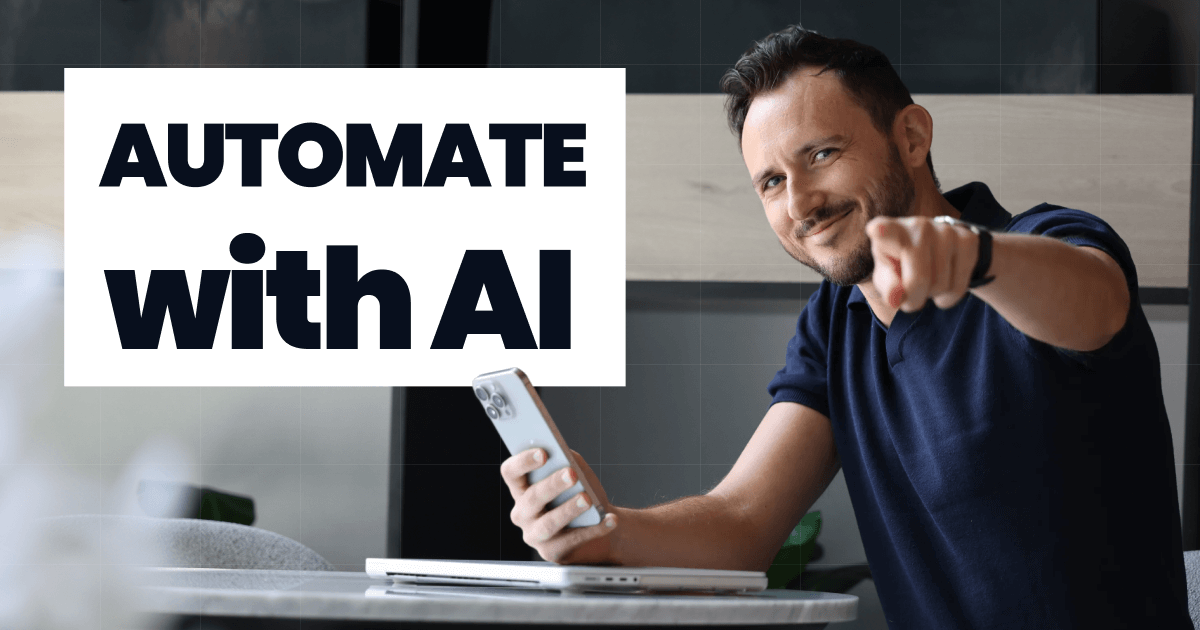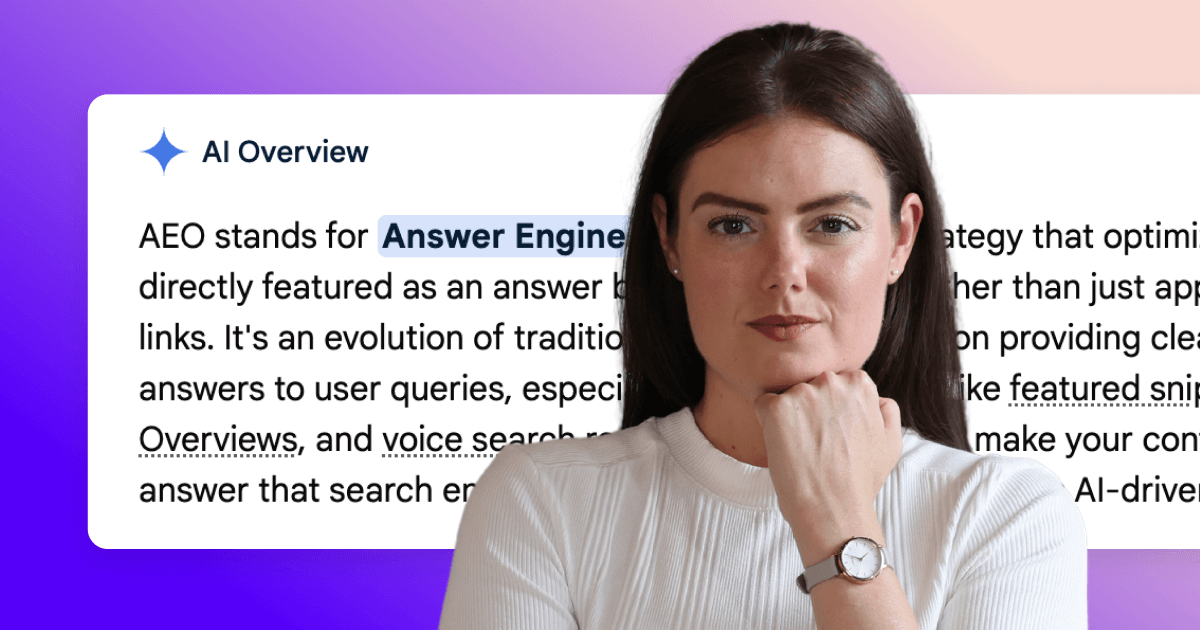
As AI has gradually become integrated into our daily lives it has become smarter with each and every technology that adopts it, and with that there has been growing concern for the safety and future of our jobs.
If you’re unfamiliar with the term Artificial Intelligence, it's likely you've been living under a rock for the last 12 months, but fear not, you can take a read of our blog post ‘What is AI?’ to get up to speed!
The technology revolution has taken us by storm. Artificial Intelligence (AI) is at the forefront of it all and its influence will soon become indispensable in our lives. AI will eventually replace certain jobs, such as customer service roles, that are replaced with digital labour - more on this below.
This new dawn of automation can be both an exciting and daunting prospect for many workers. While it certainly presents challenges to some people, we should keep in mind that AI will open up new opportunities for other sectors to expand their potential. It may also help reduce human labour spending and allow employees to embark on tasks with better prospects for them personally.
Is the media AI scaremongering?
Media coverage around AI and how robots are going to ‘take over the world’ is not all it's cracked up to be. Whilst there is truth in the click-bait titles and the fact that AI will take over some jobs and industries, it's also true that AI will also create millions of jobs within new sectors in the future.
This emerging form of technology is a chance to create new industries, reshape existing ones and ultimately widen the scope of employment possibilities available to everyone...
Like most things in technology, there's an adoption curve. Granted, the adoption rate of AI is the fastest in all of history (faster than the TV, radio and cryptocurrencies) but the complete process of transitioning from humans to 'robots' must be slow to ensure that the AI technology will serve a better purpose in the job role than a human can.
AI & The Future of Work | Volker Hirsch | TEDxManchester
The transition to AI
If your job is likely to be automated then the transition will be very gradual; you won’t wake up one morning and out of the blue have no job. Companies will trial having robotic assistance alongside human labour, and if it is deemed a success over time they will begin to replace more and more employees.
In the immediate future, humans will be empowered by AI, using tools that incorporate AI technology to make workflows more efficient, data more accurate and insights more accessible. We're seeing this in 'physical' industries like logistics and manufacturing, as well as online spaces like marketing and advertising, with tools like Ramp CRM integrating AI into social media scheduling and blog writing software.
12 jobs that AI will replace
We’ve done our research into which industries and job roles will be affected by AI technologies to collate a list of 12 jobs that will be replaced and 12 that could never be replaced by AI, with an automation risk percentage score for each job role.
Luckily for us as a digital marketing agency, we’re pretty safe (or so we thought back in early 2022!) with an automation risk of a mere 4% - human creativity and management simply cannot be recreated via a robot.
Note: the data in this article is based on 2022 research - read our latest article: Will AI Take My Job in 2023 and Beyond. You might be surprised by how quickly these risk rates are changing!
1. Customer Service Executives

Customer service roles do not require high levels of social or emotional intelligence to perform the role efficiently.
Almost all businesses now will use AI to respond to customer support questions and queries using chatbots with automated responses to frequently asked questions, such as ‘where is my order’.
2. Bookkeepers + Accountants

It is not uncommon for companies to use softwares for their bookkeeping practices. The softwares do come at a cost but it is much less costly compared to paying an employee’s salary to do the same job.
Softwares such as Microsoft Office, FreshBooks and Quickbooks are some of the most commonly used by companies. The use of AI in this job role ensures data is collected, stored and analysed correctly without room for human error.
3. Receptionists

You may have already noticed that when you call a venue to book a table at a restaurant you are often welcomed with an automated voice message to book the table, or if you check online you book through a scheduling system rather than talking to an actual representative via email or phone.
This system is becoming common practice for most modern technology companies, multinational corporations and remote working companies.
4. Proofreaders

It is rare these days for companies to have an in-house proofreader. There has been major developments in proofreading softwares over the last decade, meaning a significant reduction in proofreading jobs.
Writing softwares such as Microsoft Word and Google Docs provide self-checking writing applications and tools to check grammatical errors, correct sentence structures, with add-ons available to detect plagiarism.
5. Manufacturing + Pharmaceutical Work

The manufacturing industry is currently the biggest sector that AI has taken over, replacing millions of jobs with machinery that does the same job, but much quicker.
With the production process being largely mechanised the next step is to handle the operational aspect of the industry with AI, an area whereby work is already underway.
Eventually in pharmaceutical labs AI will get to a point where robots can work with scientists to ensure no human lives are put at risk, providing a safer work environment.
6. Retail Services

If you’ve been in-store to supermarkets you’ll have realised that automated services for self-checkout have replaced an actual sales person for the most part.
The advancements in AI technology will see retail service roles entirely replaced by robots or other AI machinery. This allows for guaranteed staffing, an understanding of customers’ shopping behaviours, and the ability to recommend products that the customer may be interested in based on their previous purchases.
7. Courier Services

Robots and drones are going to quickly take over the courier service sector. With the use of AI they can complete the logistics and supply chain functions because they are quicker, less costly, and more efficient.
Many delivery services worldwide have begun to use robots for things such as takeaway food orders, for example Starship Technology - a company who launched in 2014 tested their delivery robots in 2017 and have since successfully set up in several different countries.
Engineering and robotics design company Boston robotics:
8. Doctors + Surgical Assistants
With recent advances in robotics and artificial intelligence (AI), it has never been more exciting to consider the potential applications of AI within the field of medicine. In particular, AI has opened up some truly revolutionary possibilities for aiding surgeons during complex procedures.
Instead of relying on an assistant to provide additional hands or help relay instructions, AI could one day take over the surgical assistant role entirely. Such an advancement in medical technology would not only streamline operations but also make surgeries much safer by reducing potential mistakes from human error. As AI technology continues to make leaps and bounds, it's quite possible that surgery as we know it is about to undergo a dramatic transformation in surgery.

Robotic doctors can store endless amounts of information compared to their human counterparts, enabling them to make more accurate and effective decisions for treatment for their patients and the world of medicine has been advancing in the art of robot and AI-assisted procedures to allow for more precise technique by human doctors.
Recent advancements have seen US researchers have a robot successfully perform keyhole surgery on pigs on its own, with no human assistance!

Since we are already witnessing robot-surgeons perform critical operations it is only a matter of time before they completely replace human doctors and surgeons.
9. Soldiers + Military Personnel
The military sector becoming entirely AI and robot controlled is likely to instil fear into society with concerns of a lack of human control. However, military professionals are sure that future battlefields will be better equipped, consisting of robots that are able to follow orders without the need for constant supervision.
As technology advances, researchers are beginning to realise that Artificial Intelligence (AI) has the potential to revolutionise the way we think of and handle military-related work.
Although humans have acted as pilots and engineers in warfare for centuries, AI is starting to change this dynamic. Robots are regularly being used in military operations for various tasks such as surveillance, intelligence, and many others. Using predictive algorithms and adaptive intelligence, AI systems are now capable of performing tasks that were once restricted to human comprehension alone.
With rapid advances in deep learning and robotics, it appears clear that soon AI will replace military personnel as pilots and engineers, something that could potentially provide vast advantages to modern militaries worldwide.
The head of the UK military stated that “autonomous robots could soon form a quarter of the British army by 2030.”

10. Taxi + Bus Drivers
With self-drive cars already here, and new AI features being added to new models of cars every year, it is almost inevitable that taxis and buses will all be self-driven and fully autonomous with no need to employ driving staff in the near future.

11. Market Research Analysts

Market research is a key aspect to an organisation’s marketing strategy, and without market research analysts they won’t be able to create content, develop products or enhance their marketing campaigns to the right target audience.
However, developments in AI technology has enabled this role to be automated. Robots and other AI machinery are being used to conduct surveys and market research to generate a comprehensive market research report, without the need for human employees.
12. Security Guards

Security systems have seen tremendous change in recent years with the introduction of facial recognition systems, fingerprint access, two-factor authentication and many other features. This has also meant that the need for security guards has been in much less demand, eventually there will be no need for a human security guard thanks to the ever-evolving security systems.
12 Jobs that AI can't/shouldn’t replace
Artificial intelligence (AI) continues to evolve rapidly. As advancements are made, many people have discussed the potential of AI taking over certain job roles from humans. While it is true that there are many industries where robots and AI can easily be programmed, there are also some job roles that AI will struggle to replace. For example, as AI excels at computing data and following instructions, they lack the ingenuity of a human worker to solve problems using creative approaches.
Additionally, social situations require tact and judgement which only humans can truly comprehend and execute in real time. Consequently, while robots may help automate certain basic tasks on a production line, complex problem-solving will still rely on trained professionals with sharp minds. With that said, it is going to be quite some time before artificial intelligence takes the place of human roles.
1. Chief Executive Officers (CEOs)

Chief executive officers (CEO’s) have a role that can’t be replicated by robots or AI technology. Their job is to manage an entire organisation, motivate their employees, be a mentor, and be representatives of the company's objectives and missions - a task that simply cannot be automated.
The role of a CEO is primarily based on leadership skills, there is no way AI could ever get to a point of teaching a machine to perform in this way.
2. Teachers + Educators

As technology grows more and more advanced, the idea of AI replacing educators is becoming more and more realistic. However, there are many reasons why educators won’t be replaced so easily by AI.
For one thing, machines don’t have a personal connection to their students in the same way teachers do. Teachers build relationships with students, getting to know them on an individual level and being able to adjust their teaching styles accordingly to best suit each student’s needs. Machines would fail at this aspect; it simply isn’t possible for a computer program to understand a person on such an emotional level.
No computer system or algorithm will ever replace the unique bond between teacher and student – meaning that artificial intelligence has yet to pose any substantial threat against educators!
3. Editors

As aforementioned, AI has meant that there are proofreading softwares available to heavily reduce the workload for editors’ up to a point. But in order to publish an accurate, well-written, clarified and original piece of content, having a human review is necessary.
4. Event Planners

Event planning requires a high level of creativity and organisation skills, which have to then be applied to each client's requirements and needs - this is something a robot does not have the capacity to do.
It is an event planner's job to coordinate different activities and people to make any event a success, the role of the event planner comes in as a support system for clients’ who are stressed or under pressure from the event so it is necessary to have human contact.
5. Graphic Designers

Working with clients on an individual basis means that graphic designers must take the time to understand and interpret what their clients' needs and preferences are, to create something they will be happy with.
In graphic design skills of creativity and originality are required to combine different art and techniques to create a desired final product. It is not possible to teach a robot the skills and creativity required to successfully do this job.
6. Lawyers

As a lawyer you must be able to put together a strong argument, twisting certain details to bend the law in their favour - this is a skill that cannot be taught to robots.
Lawyers need a variety of people skills to persuade a jury and judge in court. Robots are not able to reason with humans or use persuasion as a technique. It wouldn’t be worth even trying to implement AI in this industry.
7. Marketing Managers

Whilst many marketing roles can be automated - e.g. email campaigns, follow-up messages and automated chatbot responses - it is important that the role of the marketing manager remains the same.
Marketing managers create content, monitor trends, interpret data and oversee campaigns, as well as analysing feedback from customers that will help the organisation to adapt to changes in the market. AI powered software aren’t able to respond to changes like humans can, which would make the change to a robot less effective than the human counterpart.
8. Computer Scientists

Although many areas of this industry can be automated, Scientists job roles must remain human-led. Science involves conducting lab experiments and endless research that machines can’t do.
AI can and does help with data analysis, but it lacks the creativity needed when you encounter particular challenges when conducting research and finding solutions to certain problems.
9. Writers

Writers play a very important role in society, producing content for plays, movie transcripts, blogs, books and songs. All of the material writers produce themselves is original, using the writers creativity and imagination to produce informative or imaginative content.
AI currently can write articles, but most of the work will still be done by humans, including the title suggestions, editing, and reviews.
10. Psychiatrists

Since robots lack the ability to express feelings, understand emotion or show empathy and compassion, the job of a psychiatrist is safe from AI takeover.
Psychiatrists need to be able to connect with people and make thorough observations of their clients' behaviours. It’s extremely difficult to understand and comprehend how the human brain works, even the best doctors and scientists have not been able to fully do so. Therefore, a robot psychiatrist just would not work for this job role.
11. Software Developers + Engineers

AI would not be at the point it is now without the role of software developers and engineers. It is one of the toughest jobs to work in, involving the creation of software and applications.
AI wouldn’t be able to successfully replicate the work of its human counterparts because of the complex requirements of each individual client, with product customisation not as standard.
12. PR Managers

Any role that revolves around having a strong network of contacts and building good relationships can’t be replicated with AI. Public Relations Managers definitely fall within this bracket - they raise awareness of projects and brands, as well as distributing funds to different areas of a campaign.
As a PR manager you are required to motivate people to participate, and in some cases to persuade people to take part - a skill that is not possible for robots to show.
Should my company be using AI?
It’s needless to say that AI is fast becoming part of our everyday lives, and to ensure you are keeping up with current trends it would be a good idea to start using AI within your company if you aren’t already (chances are you already do but just haven’t realised).
Artificial Intelligence (AI) can offer efficient and cost-effective solutions to many common business problems, which is why every job role should embrace it.
AI can help automate tedious tasks and decision-making processes, freeing up more time for individuals to work on larger projects or focus on more creative goals.
Additionally, AI offers advanced forecasting capabilities that can be used to accurately predict trends in the marketplace or make important decisions about the future of a business. Its ability to learn as it processes data means that these predictions can become increasingly accurate over time.
For these reasons, every job role should view AI as an invaluable asset that can help enhance their workflows and boost productivity - making it an absolute must-have in today's workplace.
Here at Beyond, we're constantly testing and implementing new tools and technologies so we're on the pulse of AI platforms. We can advise on how you can implement AI into your marketing, sales and operations to help with processes from generating leads to solving queries quickly and efficiently.
Remember: the data in this article is based on 2022 research - read Will AI Take My Job in 2023 and Beyond for the next installment...

Just a heads up, some of the links in this article may be affiliate links, meaning we may make a small commission on any sign-ups or purchases for the tools we recommend.






































